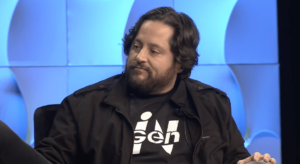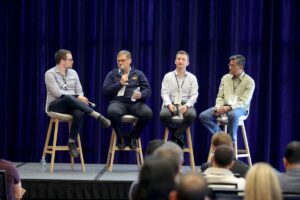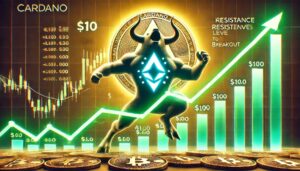
We spoke with:
The responses have been edited for length and clarity.
Angus Blair, partner, Outset Ventures
Inflation is slowing. Does the possibility of fewer interest rate hikes in the future change your venture capital investing and fundraising strategies in the coming quarters?
Domestic interest rates play a significant role in domestic appetite for fund investing since such a high portion of capital is tied up in the property market. Though there will be less or no rate hikes in the coming 6 months, we don’t expect significant rate cuts or for interest rates to materially affect our fundraising in this fund lifecycle.
As a pre-seed and seed investor, interest rates have a limited effect on our investing. At the margins we err towards higher level of capitalization, seeking 24 months plus, rather than 18 months of runway given our perspective. We have seen limited impact on seed stage valuations and expect them to remain flat over the next 12 months.
Both the number and value of venture deals decreased in Q3. Are you expecting the same trend to continue in Q4 2023 and into 2024?
For pre-seed and seed deep tech deals, we expect the number of deals and valuations to remain flat into Q4 and 2024.
How does declining late-stage venture round velocity in Australia and New Zealand impact your investing strategy? For those who mainly invest in seed and Series A, does this make early stage more crowded?
For New Zealand, we are experiencing increased interest from off-shore funds (Australia, U.S. and EU) we predict will net out to flat or increasing velocity at Series B+ for New Zealand firms.
Competition for early stage deals continues to increase, but this is largely from new fund entrants rather than multistage funds concentrating earlier.
ClimateTech has been a huge driver of private investment in both Australia and NZ. Are any of these players poised to become global leaders? What kinds of incentives, laws, or policies would be helpful?
The obvious candidate for a global leader in climate tech is OpenStar. The Wellington-based nuclear fusion company that is building levitated dipole reactors with first spark scheduled for December this year is already attracting global attention (and talent) from the physics and magnetics communities.
I think the world learned not to rely on carbon economics to build sustainable ventures after the clean tech boom of the mid 2000s – VCs look for the businesses to be both sustainable and economic on their own merits. Having said that, ventures based in the U.S. or Europe often have significantly greater grant programs if they are working on critical technology of national significance. We make up for that with a lot of other benefits including more clear slate regulatory frameworks, but to keep these companies here we’ll eventually have to match some of those financial incentives as well.
Blackbird opened a NZ fund, and many NZ investors look to Australia for new investments. What is the relationship between the two countries when it comes to funding each other? Does your firm prefer to fund locally?
All founders are excited to have more Australian firms investing locally and the same is true for most VCs. For now it’s largely one directional but that will change as relationships within the sector build.
There’s structural reasons why we don’t see more investing though; all of the large VC funds in New Zealand have New Zealand Capital Growth partners (a NZ government backed fund) as an LP which restricts where capital can be deployed, particularly for first investments. Similarly, the Australian ESVCLP structure (typically used by firms with $250m or less under management) means that to retain their capital gains tax free status they are limited to how much investing they can do offshore. As and when this limit changes, we’ll see more Australian firms investing into NZ based startups which will be great for the market.
Funding in AI startups increased this year. What are the challenges that AI startups in ANZ face, particularly as they tee up against giants abroad?
Same challenges that face VC backed startups around the world and make AI such a challenging category for VC
No advantage on data and distribution means a majority of value will accrue to incumbents.
Truly differentiated base models are too capital intensive for venture funding, without incumbent capture.
Less fragmented stack structurally means more value will be captured by incumbents (see: GPTs from OpenAI this week eating thousands of startups).





